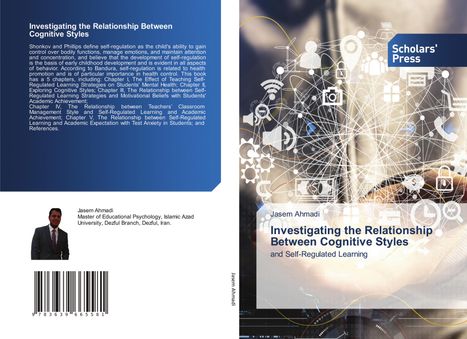Jasem Ahmadi: Investigating the Relationship Between Cognitive Styles, Kartoniert / Broschiert
Investigating the Relationship Between Cognitive Styles
- and Self-Regulated Learning
(soweit verfügbar beim Lieferanten)
- Verlag:
- Scholars' Press, 01/2025
- Einband:
- Kartoniert / Broschiert
- Sprache:
- Englisch
- ISBN-13:
- 9783639665581
- Artikelnummer:
- 12190823
- Umfang:
- 120 Seiten
- Gewicht:
- 197 g
- Maße:
- 220 x 150 mm
- Stärke:
- 8 mm
- Erscheinungstermin:
- 24.1.2025
- Hinweis
-
Achtung: Artikel ist nicht in deutscher Sprache!
Klappentext
Shonkov and Phillips define self-regulation as the child's ability to gain control over bodily functions, manage emotions, and maintain attention and concentration, and believe that the development of self-regulation is the basis of early childhood development and is evident in all aspects of behavior. According to Bandura, self-regulation is related to health promotion and is of particular importance in health control. This book has a 5 chapters, including: Chapter I, The Effect of Teaching Self-Regulated Learning Strategies on Students' Mental Health; Chapter II, Exploring Cognitive Styles; Chapter III, The Relationship between Self-Regulated Learning Strategies and Motivational Beliefs with Students' Academic Achievement; Chapter IV, The Relationship between Teachers' Classroom Management Style and Self-Regulated Learning and Academic Achievement; Chapter V, The Relationship between Self-Regulated Learning and Academic Expectation with Test Anxiety in Students; and References.


